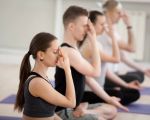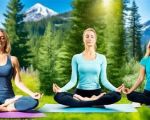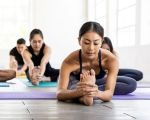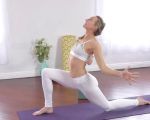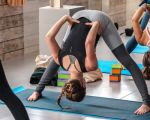- 1-understanding-the-importance-of-deep-relaxation-in-yoga
- 2-breathing-techniques-to-enhance-relaxation
- 3-yoga-poses-that-promote-deep-relaxation
- 4-integrating-mindfulness-and-meditation-in-your-practice
- 5-real-life-experience-a-journey-to-relaxation-through-yoga
- 6-finding-resources-and-guidance-on-free-yoga-links
1. Understanding the Importance of Deep Relaxation in Yoga
Deep relaxation is a cornerstone of yoga practice, providing a way to release tension from both the mind and body. Achieving this state helps reduce stress hormones, lower blood pressure, and improve overall well-being. Yoga tips for achieving deep relaxation focus on slowing down the breath, calming the nervous system, and creating space for healing.
Many practitioners find that deep relaxation not only soothes immediate anxiety but also enhances their ability to handle daily stress with greater resilience. It’s an essential part of restoring balance in today’s fast-paced world.
1.1 The Science Behind Relaxation and Yoga
Scientific studies show that yoga stimulates the parasympathetic nervous system—the “rest and digest” mode—which promotes relaxation. Techniques used in yoga influence brain waves, encouraging alpha wave activity associated with calm and mental clarity.
2. Breathing Techniques to Enhance Relaxation
Breath control, or pranayama, is one of the most effective yoga tips for achieving deep relaxation. Techniques like diaphragmatic breathing and alternate nostril breathing help regulate the nervous system and bring immediate calm.
For example, practicing slow, deep belly breaths encourages oxygen flow and signals the brain to reduce stress responses. Consistent practice of these breathing exercises can improve sleep quality and emotional stability over time.
2.1 Step-by-Step Guide to Diaphragmatic Breathing
Begin by sitting or lying comfortably. Place one hand on the chest and the other on the belly. Inhale slowly through the nose, allowing the belly to rise without moving the chest. Exhale gently through the mouth, feeling the belly fall. Repeat for several minutes, focusing entirely on the breath.
3. Yoga Poses That Promote Deep Relaxation
Certain yoga poses are particularly effective in guiding the body toward deep relaxation. Restorative poses such as Child’s Pose (Balasana), Legs-Up-The-Wall (Viparita Karani), and Savasana (Corpse Pose) create physical ease and mental calm.
These poses encourage stillness, reduce muscular tension, and help shift the mind away from stressors. Supporting props like bolsters and blankets can enhance comfort and allow longer holds for a deeper effect.
3.1 Incorporating Gentle Movement and Stretching
Slow, mindful movements—like gentle neck rolls or seated twists—can prepare the body for relaxation by releasing tightness. These movements, combined with breath awareness, set the stage for entering restful poses more easily.
4. Integrating Mindfulness and Meditation in Your Practice
Mindfulness complements yoga by anchoring attention to the present moment. Combining meditation with yoga enhances deep relaxation by quieting mental chatter and fostering acceptance.
Simple mindfulness techniques include focusing on bodily sensations during poses or mentally scanning for areas of tension. Guided meditations can be particularly helpful for beginners seeking structure.
4.1 Building a Consistent Relaxation Routine
Consistency is key. Setting aside dedicated time daily or several times a week for yoga and meditation deepens relaxation benefits. Even short sessions of 10-15 minutes can accumulate into meaningful improvements in stress reduction.
5. Real-Life Experience: A Journey to Relaxation Through Yoga
Lisa, a busy professional, struggled with anxiety and sleeplessness. After integrating yoga tips for achieving deep relaxation into her routine, including breathing exercises and restorative poses, she noticed a significant shift. Lisa reports feeling more grounded, sleeping better, and managing daily stress with ease.
Her story illustrates how accessible yoga techniques can be life-changing when practiced with patience and intention, even for those new to the practice.
6. Finding Resources and Guidance on Free Yoga Links
For those eager to explore yoga tips for achieving deep relaxation, Free Yoga Links provides a comprehensive collection of guided sessions, tutorials, and expert advice. This platform offers accessible resources suitable for all levels, making it easy to start or deepen your relaxation journey.
Engaging with trusted content and communities through Free Yoga Links can enrich your practice and support ongoing wellbeing.

